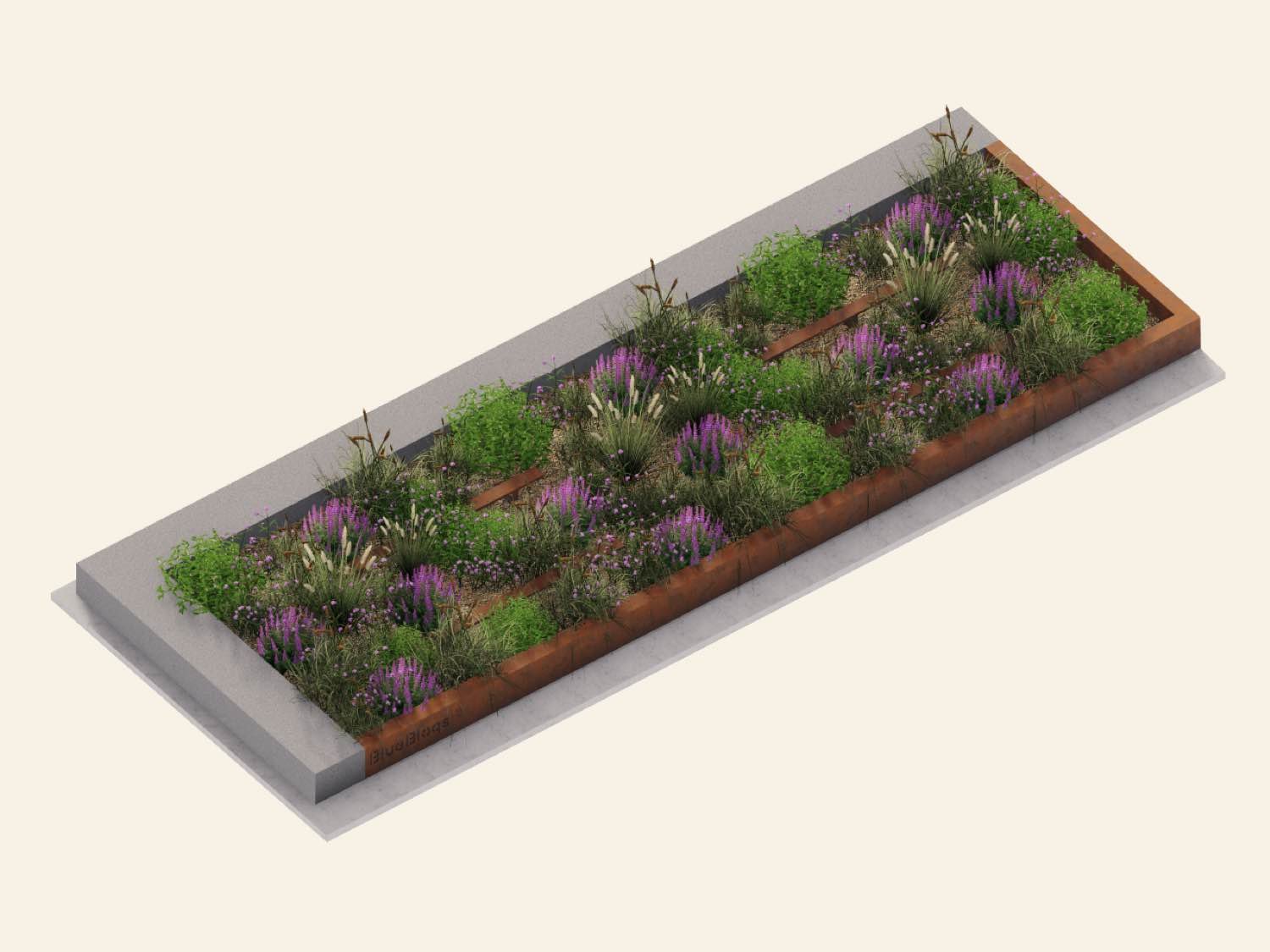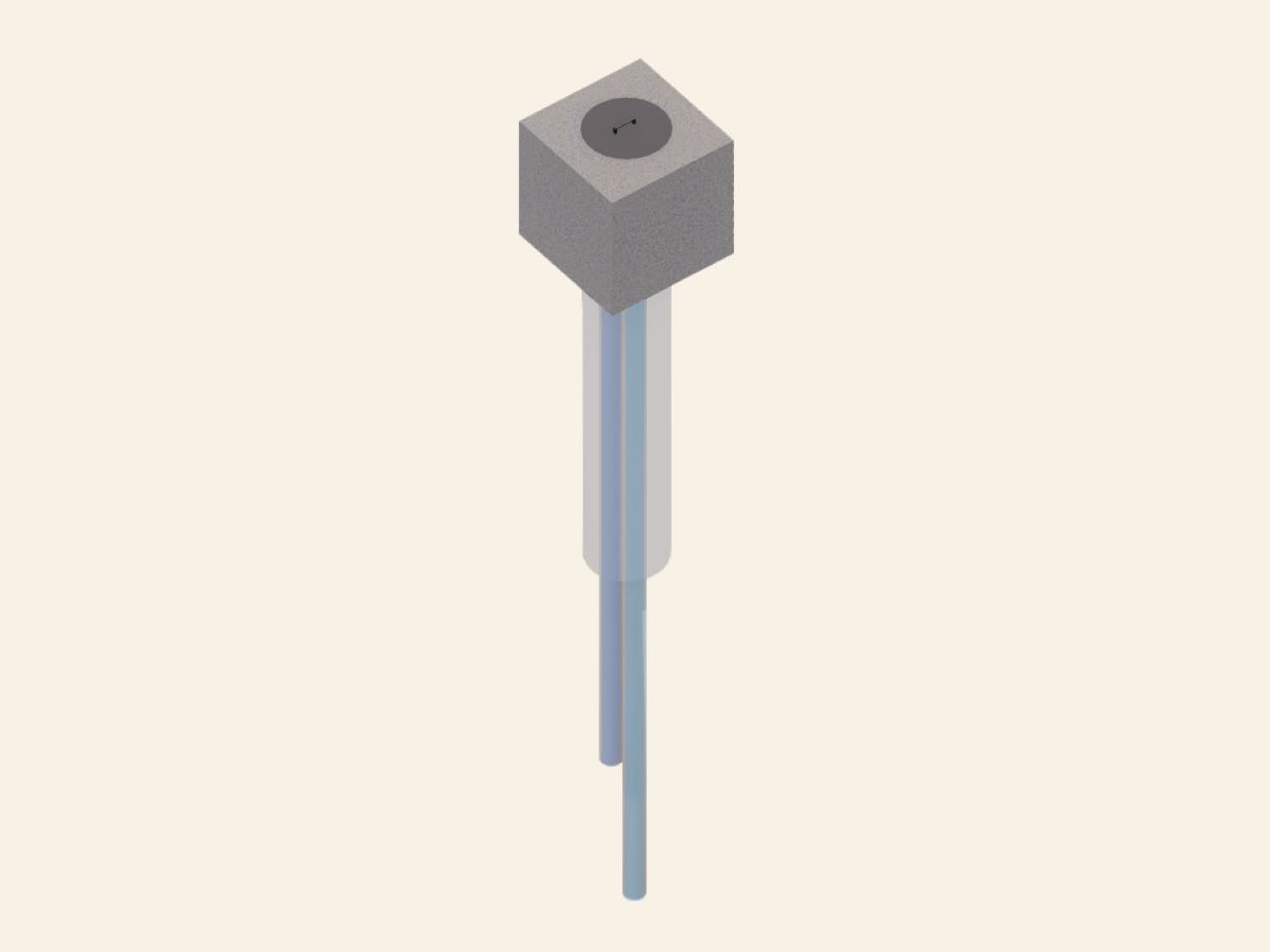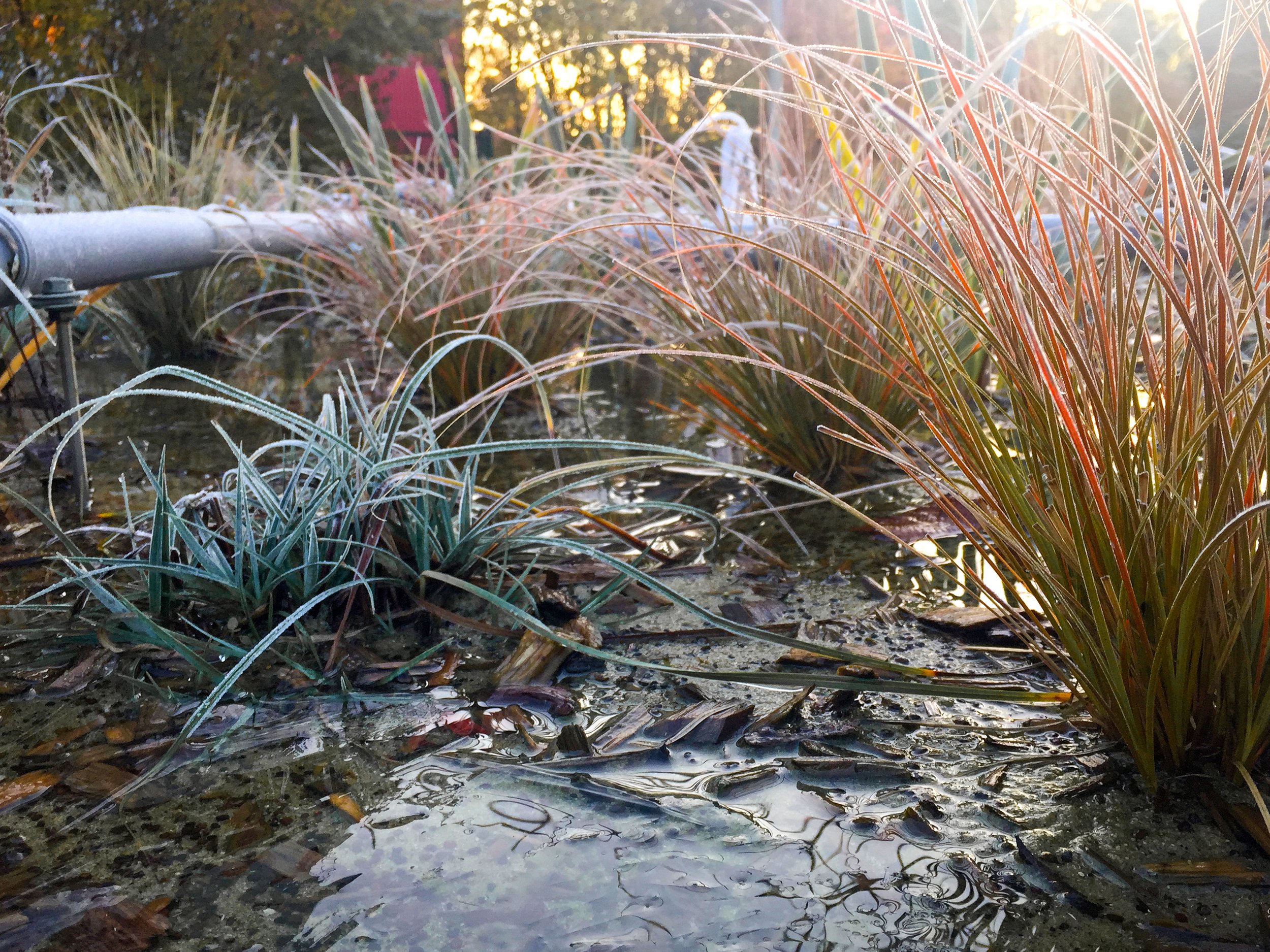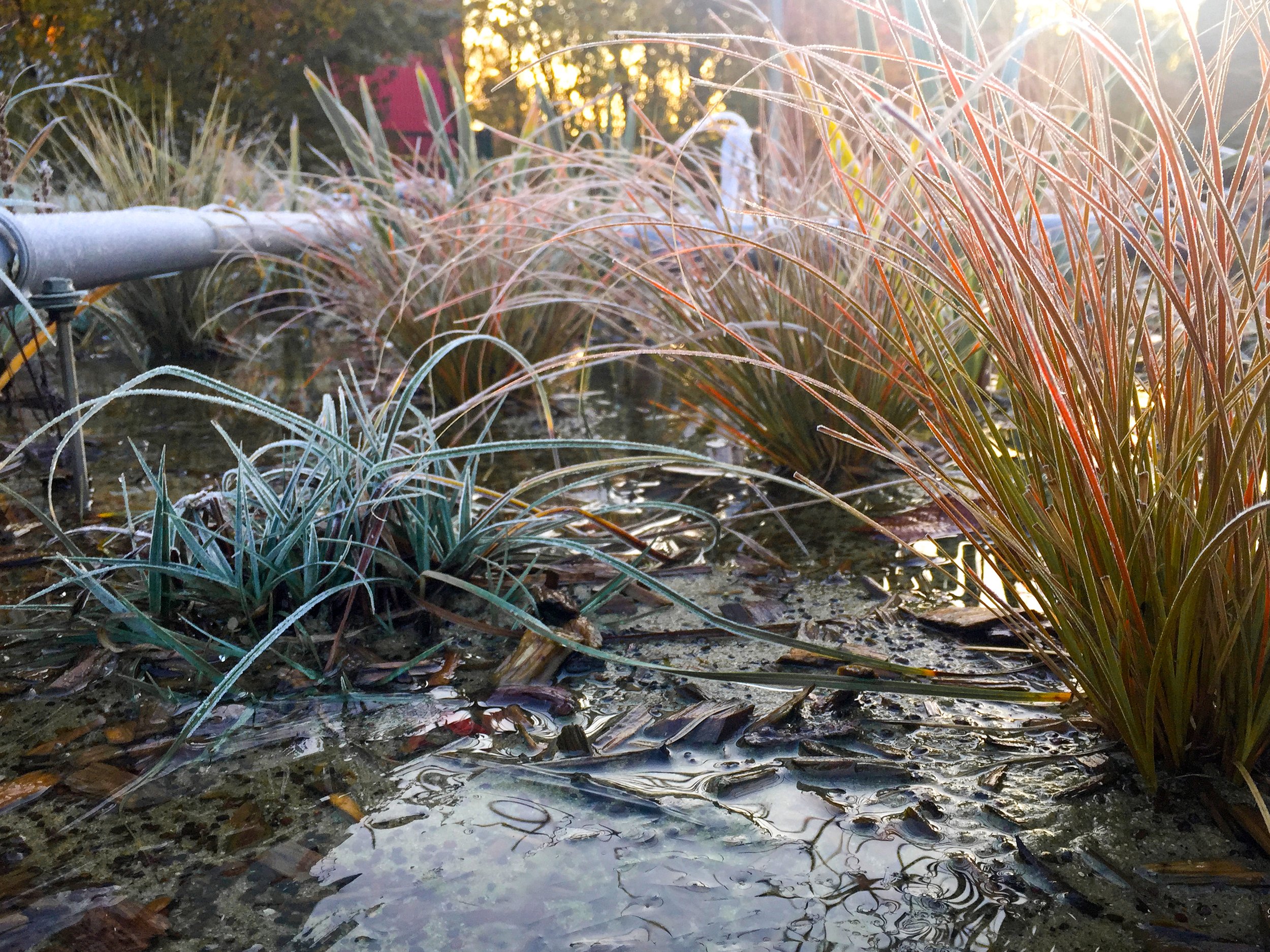-
Customer: Aquafin
Partners: Aquafin, Delft University of Technology
Year: 2019-2020 -
Collection: ±280 m² (roof)
Buffer: ±10 m³
BlueBiofilter: 9 m² -
Water use: Testing
Project phases:
Design
Product Delivery
Operation & Monitoring
Field Factors is inspired by nature
We combine design, engineering, water science and technology to implement solutions that make the urban water cycle sustainable.
-

BlueBiofilter
-

BlueWell
The solution in a nutshell
-
Why
Aquafin’s R&D campus in Aartselaar, Belgium, was selected to test nature-based solutions for stormwater management in the context of water quality challenges and climate adaptation. As part of the BlueBloqs Demonstration Project, funded by EIT Climate-KIC, the site provided a controlled environment to test water reuse technologies.
One specific concern in the region is the presence of emerging pollutants like PFAS, with nearby waste incineration possibly contributing to contamination. Aquafin partnered with FieldFactors and TU Delft to evaluate BlueBloqs as a decentralized treatment system capable of removing such substances, anticipating increasing regulatory scrutiny across Europe.
-
What
A pilot BlueBloqs system was installed to collect and treat stormwater runoff from a lab building's roof. A 10 m³ underground buffer stored the water before it was treated through a 9 m² BlueBiofilter. The system's design allowed flexible testing of various pollution scenarios, first using synthetic stormwater to simulate worst-case urban runoff, then shifting to actual rooftop rainwater.
-
How
The water was monitored through real-time sensors and periodic lab analyses. TU Delft designed the synthetic stormwater to include common pollutants, nutrients, heavy metals and organics, ensuring consistent input conditions for performance comparison. Once baseline results were established, the system switched to actual rainwater for further validation.
“Researchers in Aquafin’s R&D facility are very dedicated to finding innovative solutions to improve water management in Flanders. They provided useful insights on the potential of the BlueBloqs solution and where it can help to address key challenges.”
Long-term impact
Beyond its technical results, the pilot served as a proof of concept for regional implementation. The findings were used in a TU Delft study assessing the feasibility of BlueBloqs systems across Flanders. The project helped pave the way for new applications of circular water technologies in both urban and industrial settings, responding to growing needs for resilient and sustainable infrastructure.



